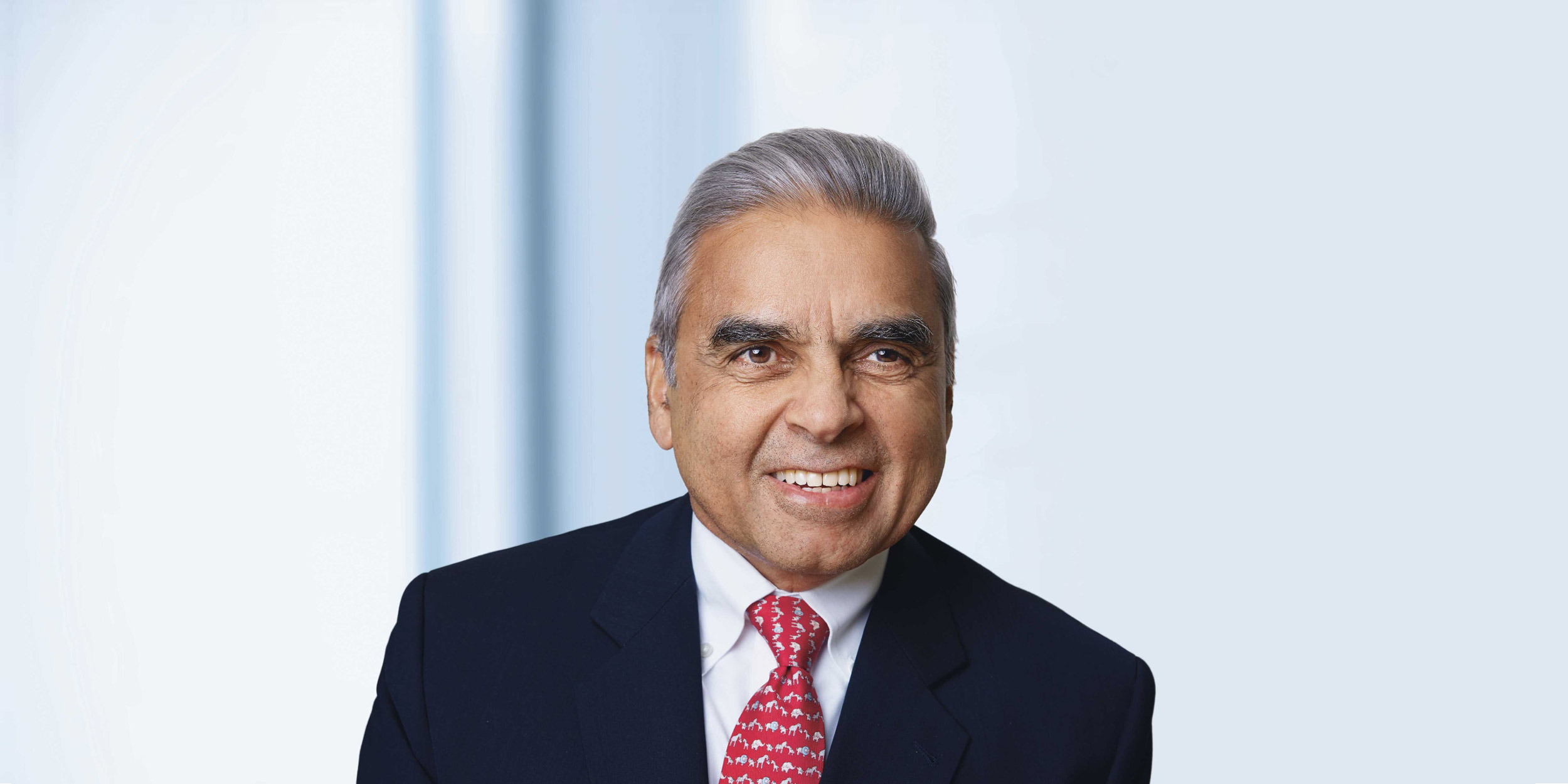
Nie masz czasu na zapoznanie się z całością artykułu?
Wystarczy, że klikniesz ikonę „oznacz artykuł do przeczytania później”. Wszystkie zapisane publikacje znajdziesz w profilu czytelnikaJoe Biden’s goals in contest with China remain unclear

Due to the recent geopolitical shift, Asia is becoming the world’s new centre, which seems to be as important or even more important than the West. What does it mean for the world? How will the new world differ from the previous one?
First, I think it’s clear that we will not have a kind of US-led global order. That seemed to be coming into being at the end of the Cold War. For a while, through the nineties and into this century, it appeared that we were going to live in a global order in which the US would be the primary power; that the great powers throughout the world would accept this order and would be willing to work within a framework defined, upheld, and to a certain extent enforced by the United States and Europe. The challenges to this kind of global order would be smaller: terrorism, rogue states, environmental problems, and so on. It wouldn’t be the kind of challenge we saw earlier in the 20th century, during the cold war etc. With the rise of China, in particular, that vision of a unipolar global order is finished. We are moving into a multipolar international order – or maybe we have already moved into such an order, where the United States remains a significant power centre, but China is also substantial. I think we can also see that Russia, whilst not on the same scale as the United States and China, remains a considerable power centre in a time, as, of course, Europe in its own strange and complex way, and India potentially down the track.
For the first time in 200 years or so, we have significant power centres in Asia, considerable power centres in the Western Hemisphere, in Europe and Russia and a new power centre in India. And they are all operating, to a certain extent, independently
Second, I don’t think we’re moving into an order where China moves up to become the globally dominant power. I think it will be a mighty state, probably the world’s most powerful state, but it will be tough for China to overturn that multipolar order and become the dominant power in itself. We see the re-emergence of a world in which, for the first time in 200 years or so, we have significant power centres in Asia, considerable power centres in the Western Hemisphere, in Europe and Russia and a new power centre in India. And they are all operating, to a certain extent, independently.
The big question to my mind is how we’re going to move from the vestiges of that old global order to this new multipolar order. I think it will have big implications for the role that America plays in Europe, but also, very significantly, in east Asia.
Two years ago, in our interview, you said it’s most likely that in east Asia, China will prevail in this rivalry. Where are we after those two years?
In this new re-sorting of the global order, America will find it very hard, actually impossible, to maintain domination in East Asia and the Western Pacific. And I think the most likely outcome is that China will end up as a dominant power in that part of the world, while India will end up the dominant power in South Asia and the Indian Ocean area. And so America will remain the dominant power in the Western hemisphere. Of course, America has not accepted that both under the Trump administration and the Biden administration. We see America actively seeking to challenge, or at least talking about challenging or resisting China’s challenge in East Asia. America is seeking to preserve its position as the leading power. And I think if we look back over the last two years, the first key development is a significant further escalation in the strategic rivalry between the United States and China. In the last year of the Trump administration, we saw a very significant escalation in rhetoric – for example, we saw Trump’s Secretary of State Mike Pompeo, describing America’s rivalry with China in very starkly ideological terms that very strongly resonated with the language of the Cold War. We saw an escalation of technological and other kinds of sanctions imposed against China and an escalating answer from the Beijing side.
The pandemic has been such a significant preoccupation for America and the newly elected Biden administration that it has served as a distraction from managing the relationship with China
The second thing is that we’ve seen that carry on under the Biden administration. There was always a question if the change of administration would also mean a difference in policy against China. But Biden’s administration continues that sort of escalating pattern of rivalry with China that we’d seen under the Trump administration. We’ve noticed that, for example, in the kind of atmospherics of the meetings in Anchorage, during Wendy Sherman’s visit to China in July etc.
The third development of the course has been the COVID pandemic. And although it’s still too early to say what that means, it does appear that the pandemic has accelerated the trend. China’s position is improving at America’s expense in this contest. China has managed the pandemic better. Its impact on China’s economy has been not so strong. The pandemic viewed from the American side of the Pacific has been such a significant preoccupation for America and the newly elected Biden administration that it has served as a distraction from managing the relationship with China.
And that brings me to the fourth point. When historians look back at the first nine months of the Biden administration, they will see how the Biden administration has maintained the rhetorical escalation in our contest with China. Still, I think they will not see anything very substantial in terms of practical policy. It’s now ten years since the United States have identified China as a strategic rival in general terms, with Barack Obama’s pivot announced in 2011. Now it’s three years since December 2017, when the Trump administration identified China as a strategic rival. Now it’s nine months since the new administration came into office. And the fact is that America has still done little real practical, concrete significance to strengthen the strategic position it would need in each stage to resist China’s challenge effectively.
And so I think every year and month that passes, the US is missing opportunities to take the steps it will need to take. And I say that partly based on a comparison with the Cold War.
In our last interview, you said that the current situation is quite different from the Cold War.
This analogy, although it has weaknesses, also has strengths. China is a highly formidable adversary for the United States. For America to succeed in containing China’s challenge and preserving its leadership in Asia is a significant campaign comparable in scale to the movement of the Cold War. But in the first few years of the Cold War, America has taken a giant leap, building NATO, building a lot of structures in East Asia, fundamentally transforming its military posture, and, of course, escalating defence spending. It was a massive national effort. And recently, although there’s a lot of talk out of Washington, there’s nothing like that effort. The most notable features of the last two years have been a rhetorical escalation and a lack of adequate response by America to balance its relative position in the competition.
How would you describe – if there is any – the Biden’s approach to the rivalry with China in practical terms or strategic terms? What does he want to achieve, and how?
This is an excellent question because, in specific terms, Biden’s administration’s objectives concerning China remain undefined. He sees China as a strategic rival. But, for example, whereas the Trump’s administration in its final days published a document, which very clearly set out its objective to maintain American primacy in East Asia, the Biden administration has not been anything like that. At least some of its senior figures have repudiated that objective and have claimed that America’s goal is not to retain primacy. Still, they haven’t given any idea of what the objective is. I think that this is something that they’re finding hard to define. I think it’s tough for them to envisage any other role for America in Asia other than maintaining primacy. But they’re reluctant to say that out loud because it understands that the diplomatic atmosphere in Asia and the Western Pacific is not favourable to that.
Biden’s administration is trying to prove that the problems that America was having in confronting China and Asia were primarily the fault of the Trump administration’s ostentatious repudiation of the traditional modes of US alliance management
I think the US has so far failed to articulate a fundamental objective in Asia and concerning China, which is both saleable at home in the United States and in Asia, where they have to be looking for support.
Biden’s administration is trying to prove that the problems that America was having in confronting China and Asia were primarily the fault of the Trump administration’s ostentatious, brutal repudiation of the traditional modes of US alliance management. Trump had been openly disdainful of allies and dismissive of the significance of alliances. And it seemed to me that the big idea the Biden administration came into office with was that they would revitalize the alliances. Having done that, they would then strengthen America’s position materially and allow it to push back against China successfully.
Was it a bad idea?
And I think the trouble with that was that it just turned out not to be true. Although Trump was very disconcerting for the allies, I don’t believe the Trump administration seriously weakened American alliances. Moreover, America’s problem in relying on allies in Asia to support it in its competition with China is precisely that it’s not clear that those allies share America’s objective.
In America, the default position, even if they’re not prepared to say it out loud, is that they want to preserve American primacy. And it seems to me that other countries in Asia, South Korea, the countries of Southeast Asia, even India, probably even Japan, actually don’t want to be dominated by the USA. They want America to remain strong, but they’re not prepared necessarily to support America in imposing American primacy on China because that is something that China would resist vigorously.
Biden’s administration is trying to prove that the problems that America was having in confronting China and Asia were primarily the fault of the Trump administration’s ostentatious repudiation of the traditional modes of US alliance management
Joe Biden is returning to the appreciation of the US’s allies. From this point of view, his election seems like good news for Australia. Do you agree?
Indeed, he’s easier for Australian political leaders to get on with than Donald Trump, but some questions still exist about how confident Americans are in US leadership. There are also some broader complications in the relationship. For example, the Biden administration is putting a very high priority on climate change as a national and international policy question. The Australian government is reluctant to make firm commitments on climate change, which has been a source of significant tensions between Washington and Canberra. And even before the events of last month in Kabul, the relationship between the new administration in Washington and the government in Canberra has been not as close and warm as you would have expected, considering how glad everyone was to see the Trump administration removed from office.
Zobacz
The idea of “Solidarity” has been killed in Poland after 1989. Law and Justice fills this space only rhetorically
The tragedy of Poland is that it had to conform to the demands of the international Western community. It had to become aggressively capitalist and corporatist and it could not assert its independence. Jarema Piekutowski interviews Maurice Glasman
Khanna: Just because I'm a geopolitician by education, does not mean I'm an ideologue. Conectivity today is a battlefield for influence
Is Parag Khanna the second Fukuyama? Will we see a brutal race for the greatest possible connectedness? Or will conectivity bring peace, reduce the number of classic warfare? What will be the role of the West in this competition, and how much will the Belt and Road initiatives mean? Will nation-states fade away in favor of tribalism?
A Tale of Two Monsters and Four Elements: Variations of Carl Schmitt and the current global crisis
We have a class of scientific technocrats directing the work of a class of politicians without honour, who utterly subordinate everyone else. Only a spiritual revolution will save us now
India is, and will be a non-aligned power in the New Cold War
India is a non-aligned power; this move not only protects its own varied relations (as seen with India-Russia ties and even India-China bilateral) but also allows it to provide guidance and support to smaller economies in Asia and the Indo-Pacific
The Sino-Russian relationship should not be seen as an alliance of revisionist powers
Chinese do not feel comfortable with the seemingly endless “endism” produced by Western intellectual elites, be it Fukuyamanian “end of history” at the end of the Cold War, or the recent variant of the “end” of the so-called liberal international order (LIO)






















